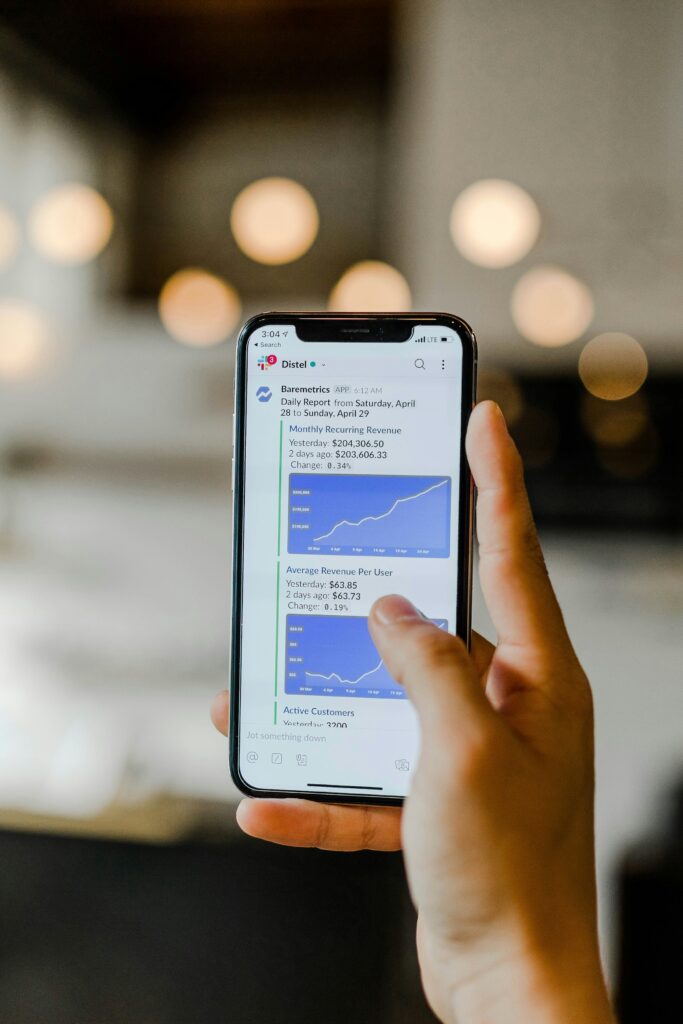
Most Successful Retail Brands That Use PPC Alone Pay a Premium for Diminishing Returns & Lost Opportunity

If you’re an established brand, chances are you feel it in your bones. You know you’re just riding a plateau you’ve long ago established. Maybe you even lead you niche, but you’re no longer growing. Could a digital marketing strategist and a formal digital marketing audit be saving your time and headaches?
I talk to hundreds of business owners every year who ask this very question. Many say they’re leading their niche but they don’t know how to grow anymore.
What they don’t understand about digital marketing is standing in their way usually, and that obstinate wall can be better understood as ignorance about the role of competitive intelligence and website analytics. But to understand this point, we have to look at what happens without such a data-driven approach, even for brands with ad budgets who trade short-term visibility for long-term market share.
Pay-Per-Click Cost Per Action/Aquisition rates (CPAs) breed torpor. When business owners and their marketing managers have more or less reached a steady CPA from their “short-term” PPC campaigns, and they’ve gotten all the perks that come with that, there’s still the likely possibility that they’re ignoring organic traffic side of the equation and thus ruining their conversion rate growth as well as their total traffic potential.
Buyers do not ever make a purchase from clicking your ad alone. Most people don’t trust an ad at face value without knowing enough about the brand. If the don’t know it already, they want to research the brand. But even better, they want to know you long before they ever click on your ad.
This is called brand recognition and without it, nobody actually buys anything. Most people want to know something about the brand before they buy, and not just from your website. They want to hear others talking up your brand. And without organic search visibility, and references from others in that organic search and/or social breadcrumb trail, you simply don’t have that.
This brings us to our next question…
How Do You Overcome a Lack of Brand Recognition?

The best way to most quickly and easily balance your digital marketing system is to do a professional audit by an experienced digital marketing strategist. This allows the brand to discover — and create steps toward embodying — an omnichannel marketing approach that is worthy of the name.
A digital marketing strategist worth their salt will be able to audit your brand’s marketing ecosystem to pinpoint what’s missing and how to either complete the circuit or possibly pinpoint all the obstacles standing in your way to that, or both. An agency who skips or pretends to include an abbreviated version of this is not doing marketing so much as selling solutions based on the client’s personal prejudices.
Auditing digital marketing ecosystems is what I’ve been doing for over 23 years now as a digital marketing strategist. It’s not always fun. Clients and prospects don’t always want the truth about why their marketing has hit a brick wall, they often want validation of their own theories, but I always give them a data-driven approach, nonetheless, and try to do so with as much patience as I can muster. And I have to tell you, approximately 1/10 of these clients do not listen. That’s okay, the other 90% do, but there’s always that one client, or maybe their jealous “marketer” — you know, that guy or gal who says whatever they sense the prospect wants to hear — who’s really standing in the way of progress and scared shitless of being discovered for what they really are: a fraud.
I’m not knocking young and less experienced marketers, especially specialists who’ve taken the time to learn their craft (I’ve been there in multimple channels myself along the way), and who understand their channel well enough to know that no single channel operates in a vacuum. It just so happens that many less knowledgeable clients out there want to hear that old specialist’s lie that one channel is all you need to succeed. It’s balderdash. Here’s why…
How Do Channel Campaigns Really Work?

The PPC campaign: Your PPC operates based on ad scores, which are gauged by ad copy, keywords, higher filtering of constituent keyword lists, your landing pages and the level of keyword range optimization and UX optimization (CTAs that work, and other things that attract rather than repel the prospect on your website or other web presence location).
So in essence, a PPC campaign without both strong on-page SEO and strong UX and ongoing CRO and A/B and multivariate testing isn’t ever full strength.
The organic social media campaign: Your social media culture should first work for your brand and for the platform being tested, but if you haven’t given them a bonafied test, you’re deluded if you think you’ve already plumbed the depths of what the platform has to offer your brand. You have not, so please stop telling yourself that. Organic campaigns are not meant to go without testing and eventually using social media ads. The ad seals the deal and lets prospects know you’re selling something at all, and how to grab it.
The paid social media campaign: Your paid social ad campaign(s) require a thriving organic social timeline and engagement to seem clickable and interaction-ready.
No signals on your posts? No visible support from anyone in your audience? That might fly for an agency or some other business that relies on highly qualified networking and word-of-mouth to avoid a costly advertising war, but it won’t fly for the typical B2C or B2B brand that depends upon visibility to support positive ad interaction. This is why paid social without best practices organic social culture in place falls flat and fails to deliver a brand story.
The organic search campaign (A.K.A., SEO): A great SEO campaign, at least for a typical B2B or B2C business type, really needs viable ways to extend that brand story into greater visibility beyond what your current content strategy and SEO depth can bring you. Did you know that SEO depends on ALL other channels to succeed, not just organic search? Moreover, it should be creating opt-ins, but if your opt-in on-ramp isn’t there, you’re wasting traffic and sabotaging your own lead generation in the bargain.
The lead funnel: Did you just say in your head “funnel?!”. Yes, funnel. If you don’t know yours intimately (or worse, believe funnels are somehow “dead”), you’re wasting time and money. If you don’t have a working opt-in strategy (reasons why people should be willing to give you their first name and their email, if not their phone number, too), and you’re not working all feasible, viable channels within your grasp, then you haven’t actually figured out how you’re going to take advantage of the visibility you already have, and at the very least, you probably still have some discovery left to do in regard to your own existing funnel (versus your ideal funnel) no matter how far you convert leads.
In our own experiments, most businesses getting 2.4 K unique visitors per month and a fair amount of keyword targeting to that traffic could likely covert about 15-30% more leads from their current traffic by simply doing some simple conversion rate optimization via A/B and multivariate testing with a tool like Google Optimize, a decently configured GA4 account and a single marketing goals dashboard on Looker Studio. But even 10K per month won’t reveal much without testing and a solid multichannel approach that fully takes into account the true niche audience and their proven media consumption, social media and searching habits.
In short, you need market research to know what channels to use and how to use them, and that’s what you get from a professional and completely data-driven digital marketing audit.
Multichannel vs. Single Channel: the Eye-Opening B2C Retail Model

Data from my own and countless other experiments by technical marketers and real-life client accounts bears out the fact that without a full omnichannel reach around any favorite 1 or 2 channels, clients can’t pick up the ultimate value from that favorite 1 or 2 channels and/or don’t mature the leads into as much marketing KPI value or end-business as they otherwise would.
B2C retail chains may provide one of the best and most documented case studies going, as those brands involved are often larger chains with much more to lose from overinvesting in the wrong technologies. Even in the grocery industry, studies have found that a whopping 69% of grocery sales were pre-influenced by digital marketing in one way or another.
In fact, 90%+ of those polled were found to have used the mobile loyalty app / barcode is an indicator of loyalty. This of course translates into customer retention KPIs. And of course, I have my own analytics data and a number of in-depth case studies to prove it if any prospect cares to look deeper into the matter.
Apps are not a stand-alone strategy in the geo-marketing basket, either. In-store brick and mortar B2C stores like Target, Macy’s, Nordstrom, CVS, Walmart, Neiman Marcus, and Hillshire Farms, among others, all have either experimented with beacons and experienced productive, positive results or are actively using them in full roll-out in tandem with an app of their own to remind of or discover pricing specials and buy-one-get-one free specials and other app perks.
Why? Well, retailers have been shown in Unacast’s Proximity Directory Q1 2017 Report to “increase profits by nearly 9%, with an ROI of 175%.”
Conclusion: The Data Isn’t Just Established, It’s Conclusive
There is a tendency of many small outfit brands and family-owned businesses to discount case studies in favor of what they can reproduce in their own trials. Unfortunately, when those trials are badly run, or with too little data (example: a year or less in video experiments without following all of the best practices entailed to get the signals required for SEO impact), then the trial itself was the dud, not the underpinning hunch it was meant to prove or debunk.
The data from comprehensive studies like the above don’t lie. Of course the only way to know more about your own situation first-hand is to get an omnichannel digital marketing audit from someone sufficiently experienced with all channels at a strategy level for least 5+ years at an omnichannel strategist level, preferrably while attached to a going agency with notable past clients on their roster.
Want to learn more?
Get a full digital marketing audit from the only apparent 23+ year omnichannel digital strategist in the Southeastern US to work with numerous Fortune 5-5000 clients like Adobe, Chevron, Huawei, Geostock, a top-four foreign national bank, virtually all niches and too many startups to count.


